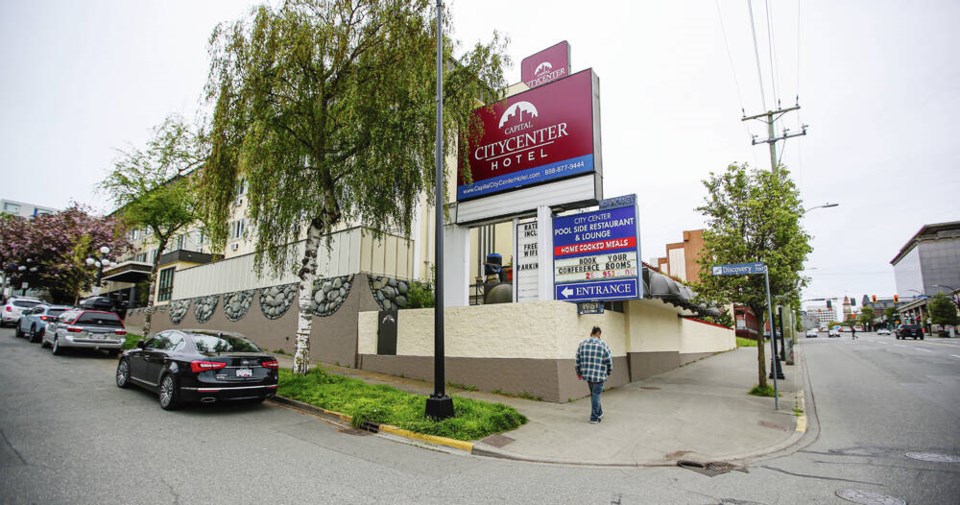The price the province paid for nine Victoria and Vancouver properties purchased for social housing was below their total appraised market value, B.C.’s auditor general says.
Michael Pickup said Tuesday that B.C. Housing followed all the proper procedures when it bought the properties, many of them hotels, to shelter those without housing during the pandemic.
In releasing the audit of the expenditure, Pickup praised B.C. Housing for completing the transactions in a timely way during the challenging conditions of the pandemic. Properties were bought over a 13-month period in 2020 and 2021.
He had no recommendations, something that is rare following an audit.
Some people had questioned the purchases, fearing the province may have paid too much in its haste to find shelter for people without homes.
But Pickup said the audit found all of the approval requirements were met and certified, independent appraisals were obtained and the purchase total was below the total appraised market values for the nine properties.
B.C. moved to buy hotels and other properties after declaring a state of emergency in March 2020. Officials were concerned for the well-being of those living in Topaz Park and in tents along Johnson Street in Victoria and in Oppenheimer Park in Vancouver.
The audit covered only properties purchased by B.C. Housing using special provincial funding.
The nine properties the audit examined were bought with money approved by the province and drawn from its special account for housing priorities initiatives. Other purchases were not probed because their funds came out of B.C. Housing’s annual capital budget.
In 2020 and 2021, B.C. Housing paid $403 million to buy properties for people who were unhoused or at risk of becoming homeless, Pickup’s report said.
Three levels of approval were required to line up funds for the nine sites. Treasury Board gave its approval. B.C. Housing’s board of commissioners vets purchases of more than $35 million and approved purchase of two Vancouver properties above that level. Finally, B.C. Housing’s executive committee approved the purchases, along with the Provincial Rental Housing Corp.’s board of directors, which looked at each purchase individually.
Pickup said B.C. Housing carried out its due diligence, obtaining market value appraisals for the nine properties.
The total purchase price of $202.4 million was below the total appraised market value of $220 million for the nine properties. The final cost for all the properties was higher at $221 million because it includes other costs, such as taxes and fees.
In Victoria, the Comfort Inn (now called Muncey Place) at 3020 Blanshard St. had an average appraised value of $21 million. It sold for $18.5 million in May 2020 and the final cost was $19.2 million.
Paul’s Motor Inn at 1900 Douglas St. had an average appraised value of $18 million and sold for $14 million in June 2020, with the final cost $14.5 million.
Capital City Centre at 1961 Douglas St. had an average appraised value of $23.5 million and was purchased for $24.5 million in May 2021, with the final cost $25.2 million.
The 225 Russell St. site had an appraised value of $8.1 million and sold for $8 million in April 2021, with a final cost of $9.6 million.
The Russell Street property had been bought a few months earlier by a Victoria investor for $3.4 million. An official with the Attorney General’s Office said the earlier sale covered the land and an existing building. The province’s costs included additional elements such as design and construction for the future conversion of the building into a 40-unit permanent supportive housing facility, plus renovations to create a temporary shelter for 70 people.
B.C. Housing looked at criteria such as building condition, environmental assessments and title reviews, and obtained environmental reviews for all nine sites, the audit said.
It did defer geotechnical surveys for all sites, which are considered low risk for these kinds of properties, taking into account future plans and the ongoing public health emergency, the report said.
Hazardous-materials surveys were deferred for all but one property, which was being renovated. Similar surveys for the other eight sites are on hold until major renovations are carried out, the audit said.



